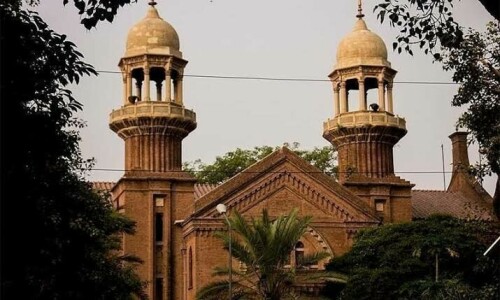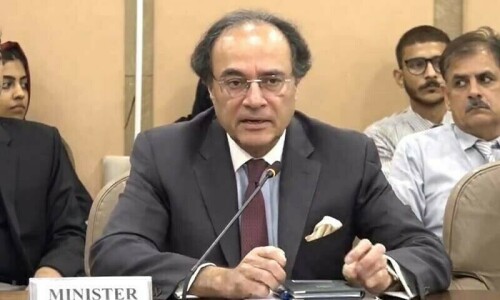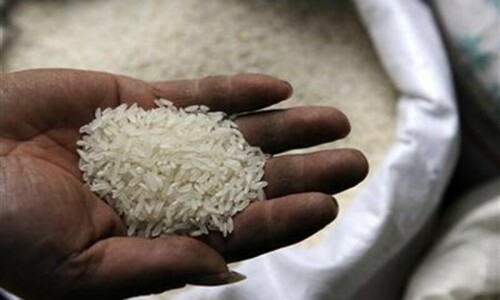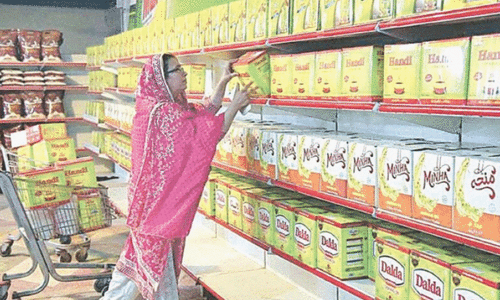TWO recent statements by the Inter-Services Public Relations should have raised the spirits of all those who wish to see a formidable threat to the state and society of Pakistan eliminated. ISPR announced last week that Operation Khyber-II in the upper Khyber Agency has concluded successfully and that 90pc of the North Waziristan Agency in the tribal areas (Fata) has so far been cleared as a result of Operation Zarb-i-Azb.
Although we have yet to see a plan for ‘transfer’ after ‘clear’ and ‘hold’, this seems a welcome state of affairs notwithstanding that skirmishes, targeted killings and detonations of IEDs are still reported regularly.
All the seven Fata agencies, from Bajaur in the north to South Waziristan in the south, have virtually remained hostage to militant syndicates of various shades over more than a decade. As a result, battles between the militants and security forces not only exacerbated the isolation of Fata from the rest of the country and the world politically but also gave rise to socio-cultural disruption as a consequence of displacement, depletion of meagre economic resources and destruction of an already fragile infrastructure.
A paradigm shift is needed in the state’s perception of Fata.
While several challenges in the area need to be met simultaneously, the immediate one is to prevent the militant syndicates from regrouping. While border management and cordial relations with neighbouring countries, especially Afghanistan, are an essential element to ensure this, political will must be harnessed for some further significant measures.
We have seen several task forces and commissions established in the past to suggest reforms in Fata. A joint committee of 10 political parties has recently offered certain recommendations in this respect. Several civil society organisations have also been active in lobbying for reforms over the past several years. Some recommendations are common to all these endeavours: these include extending judicial and parliamentary domains to Fata by amending Article 247 of the Constitution and reforming the draconian Frontier Crimes Regulation. However, implementation still seems a far cry.
Two reasons appear at the core of non-implementation of these suggested reforms. The first and foremost is the state’s unwillingness to see Fata through a development-centred paradigm rather than a security-centred one. It is imperative that the state make a paradigm shift with respect to Fata. The second reason is resistance by a minuscule class of vested interests that has perks and privileges in the present dispensation.
It is high time that a comprehensive framework for the integration of Fata was developed by the civilian government and parliament in consultation with the establishment and the KP government. Such a paradigm for Fata should include a development framework, socio-cultural integration, political integration and administrative reforms.
For this to happen, the federal and provincial governments must restore the trust of the people of Fata. The most important element in this exercise would be the dignified rehabilitation of all the displaced families from the seven agencies. The second step is to transfer authority to the civilian administration. However, in the event of that happening, one could question whether the previous administrative structure of political agency would still be relevant.
A development framework would need to include short-term measures to cater to the displaced families’ immediate needs. Economic opportunity zones and industrial zones might be planned as midterm measures. The prime minister’s commitment, as reported, to construct a road from Bajaur to Waziristan is welcome in this respect.
Fata’s political and constitutional integration would need judicial and parliamentary domains to be extended to the area. While reforms in the criminal justice system have been pledged in the National Action Plan, legal experts on Fata can suggest the inclusion of those clauses of ‘riwaj’ (customary law) for Fata’s criminal justice system that are not in contravention of fundamental rights. A new local government act for Fata might be moved in parliament by the government.
The Fata local government might be able to execute and oversee the development projects which have so far remained unaccountable. It may also be able to frame and implement an effective social services delivery system. Education, health, transportation and law enforcement can be taken up on an emergency basis by Fata’s would-be local government. As a first step, all Fata agencies could be given representation in the KP assembly to oversee law enforcement and spending of funds in Fata. Such representation might also pave the way for Fata’s socio-cultural integration. A sense of ownership and belonging among the people of the area is sorely needed.
However, the prerequisite for all this is that the state’s strategic orientation towards Fata undergoes a shift towards development and integrative orientation.
The writer is a political analyst based in Peshawar.
Twitter: @khadimhussain4
Published in Dawn, July 9th, 2015
On a mobile phone? Get the Dawn Mobile App: Apple Store | Google Play










































